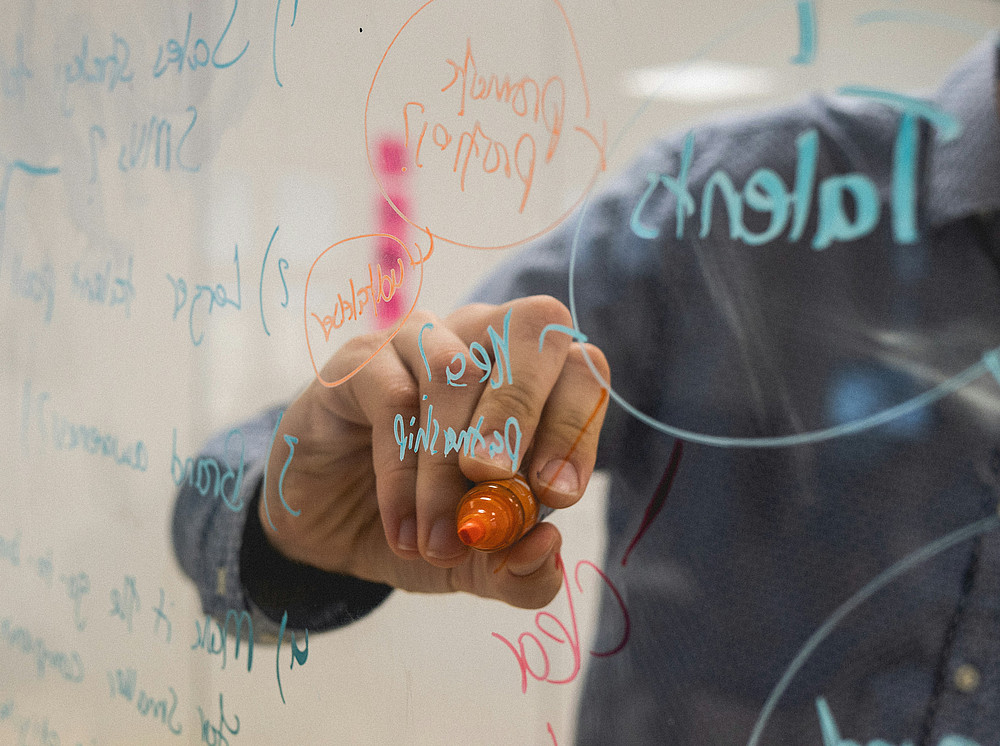Programme Outline
1. Summer school 1 (August)
The selected students start the programme with a summer school where they meet their instructors and students from the other CIRCLE generations. The summer schools are organized each year in one of the consortium partner countries: Austria, Norway, Sweden or the Netherlands.
2. Host university 1
The selected students spend their first year at their host university 1 where they have to obtain 60 ECTS.
3. Summer school 2 (August)
The students have now completed their first year of studies. This summer school is intended to broaden their knowledge of circular economy.
4. Host university 2 (with the option of an additional mobility)
The selected students spend their second year at their host university 2 where they have to obtain either 30 or 60 ECTS. This depends on whether or not they complete an additional mobility at one of the associated partners in this time. More information on this can be found in the section on mobility.
5. Summer school 3 (August)
During this summer school, the students who have just graduated receive their diplomas.


Curriculum
The first semester of the programme is intended to equip you with the necessary knowledge about circular economy and its tools. In the second semester you will delve deeper with topics in implementation, management and design.
You will spend your second year of the programme at a different institution. Depending on the specialization track of the institution, you will build on the basis you have created in your first year. The specializations focus on important aspects of circular economy and are chosen based on the particular expertise and focus of the respective university. You will conclude this year by writing your Master’s thesis.
| 1st semester | 2nd semester | 3rd semester | 4th semester |
| Basic Knowledge: Circular Economy Tools | Implementation, Management and Design | Students complete one of the offered specialization modules | Master's Thesis (& Defense/Exam) |
Specialization modules:
- The Human Dimension of Circular Economy (Graz)
- Design of Circular Economy (Delft/Leiden)
- Climate Change Mitigation and Sustainable Energy Systems in a Circular Economy (Chalmers)
- Modelling the Circular Economy (Trondheim)
- Economics of Circular Economy (Waseda)
Course Guide
To learn more about the content of the courses offered by the universities in the consortium, take a look at our course guide.

Mobility
The selected students start their studies at their host university 1 where they spend their first year. During the second year, the students must complete the obligatory mobility. This means that they have to leave the host university 1 and move to the host university 2. The host university 2 is one of the European partner universities which must be different than the host university 1.
Apart from this obligatory mobility, the CIRCLE students can complete an additional mobility. In terms of the additional mobility, the students can apply for one of the non-European associated partner universities: Curtin University in Perth (Australia), at Waseda University in Tokyo (Japan) or at Tsinghua University in Beijing (China; only possible in the fourth semester). The associated university that the students can apply for depends on their host university 2:
| Host University 2 | Activity & Associated Partner |
|---|---|
| Chalmers University of Technology OR Delft University of Technology / Leiden University | Research stay (Curtin University, Tsinghua University, Waseda University) |
| University of Graz OR Norwegian University of Science and Technology | Courses (Waseda University) OR Research stay (Curtin University, Tsinghua University, Waseda University) |
Application for the additional mobility
The application for the additional mobility with our non-European associated partners is only possible once the students have already been admitted to the programme. The application will open in mid-December and will be open until mid-February. The CIRCLE students who wish to apply for an additional mobility can send an application email to emcircle(at)uni.graz.at including the following documents:
- Motivation statement
- Transcript of records for the 1st semester in the CIRCLE programme
- Study/research plan
The Admission Committee then reviews the applications and decides which students will be given the opportunity to go on an additional mobility. The students selected by the Admission Committee must then be approved by the associated partners. Per CIRCLE intake, only three additional mobilities are available (each one at Curtin University, Waseda University and Tsinghua University).
NOTE: The students from Partner countries can only spend up to three months in any Partner country according to the Erasmus Mundus regulations.
